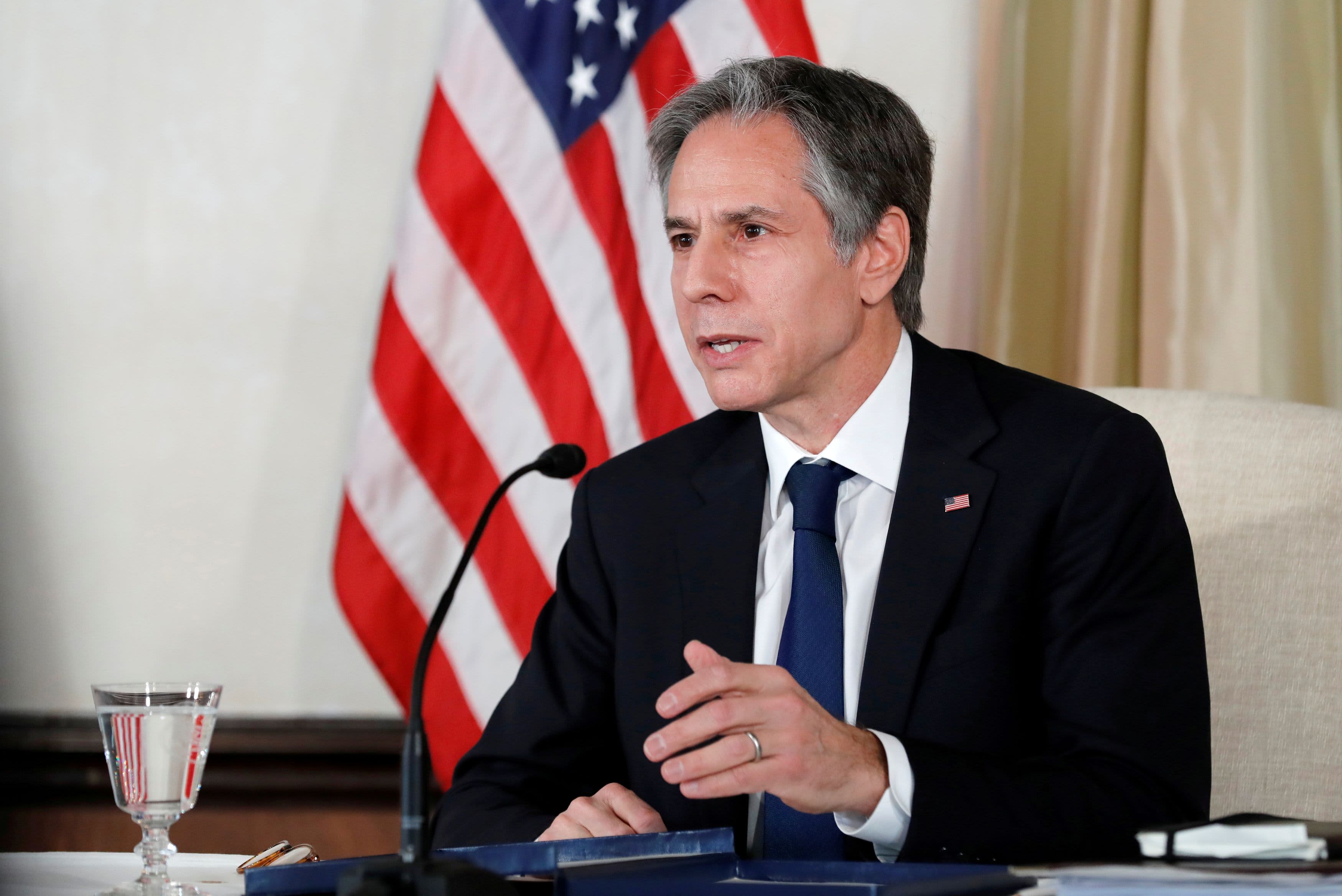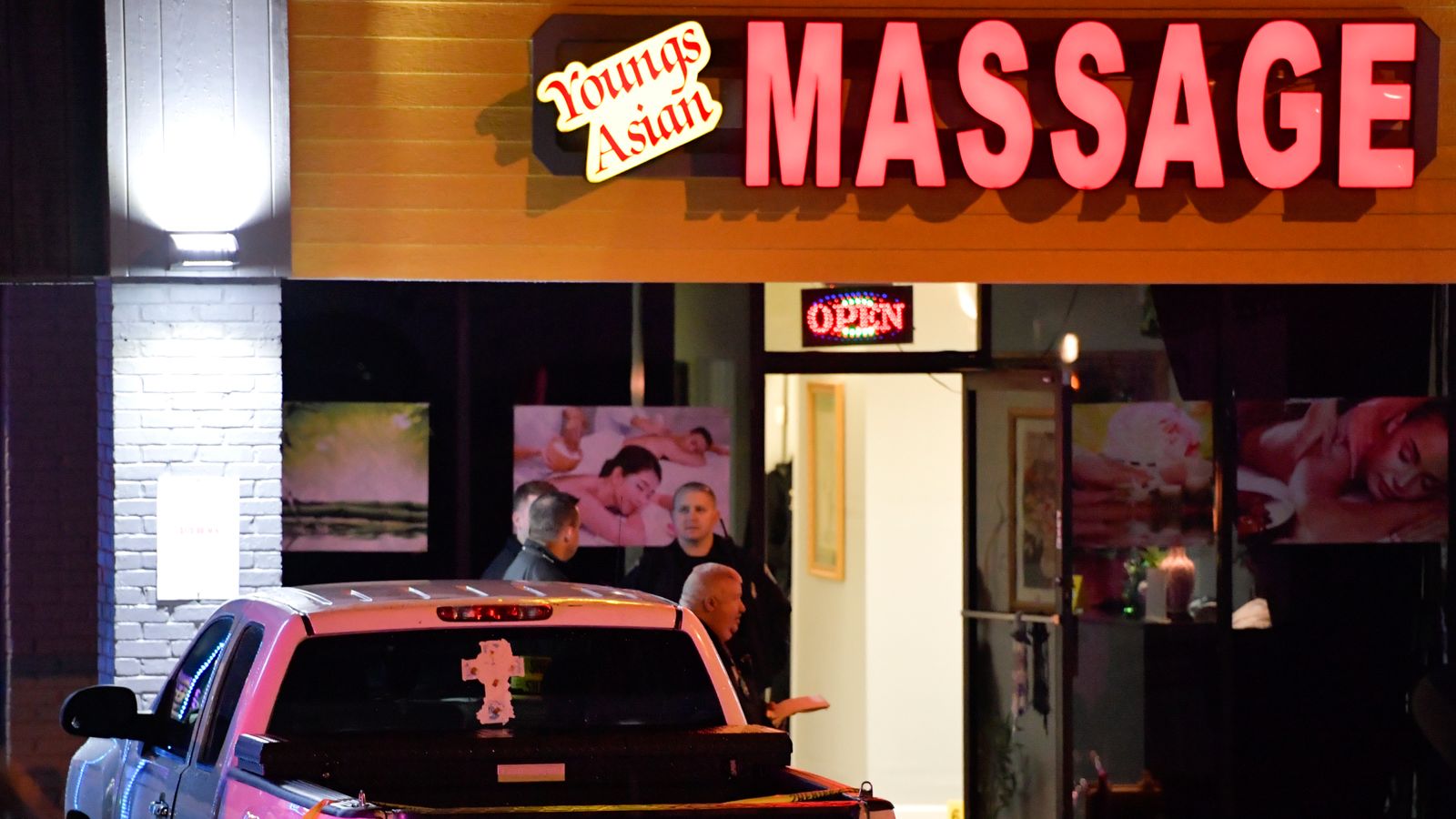
 "A Strong Smell of Gunpowder and Drama"
"A Strong Smell of Gunpowder and Drama"What was meant to be a short, four-minute photo-op for the first meeting between the Biden administration and Chinese officials ended up becoming a tense hour of sharp rebukes and barb trading, underscoring the level of tension in the U.S.-China relationship. Beijing has said that a "strong smell of gunpowder and drama" resulted from the talks.
The opening address, which kicked off the two countries' first in-person meeting under the Biden administration, began with remarks by U.S. Secretary of State Antony Blinken, who said the U.S. side would bring forth "deep concerns with actions by China, related to Xinjiang, Hong Kong, Taiwan, cyber attacks on the United States, economic coercion toward our allies." Yang Jiechi, China's top diplomat, shot down "the unwarranted accusations from the U.S. side" and criticized human rights issues in the United States. Within the next hour, reporters were called to return to the briefing room multiple times for updates. Read more in Behind Blinken's Speech, from Yang Wenjing. Research Professor at the China Institutes of Contemporary International Relations.
The two-day meeting, led by U.S. Secretary of State Antony Blinken, national security adviser Jake Sullivan, Chinese Foreign Minister Wang Yi, and director of the Central Foreign Affairs Commission of the Chinese Communist Party Yang Jiechi, is set to conclude Friday. Expectations for the meeting were low, and the run-up to the meeting was marked with tough talks and blunt warnings. Days earlier, the U.S. sanctioned 24 Chinese officials over Beijing's increased assertiveness in Hong Kong, while China announced that it would begin a formal trial for two detained Canadians. Foreign Minister Zhao Lijian had also criticized Blinken and United States secretary of defense Lloyd Austin over their meeting with Japanese officials.
 Technologically Challenged
Technologically ChallengedThe U.S. Federal Communications Commission labeled several Chinese tech and telecommunications firms as security threats earlier this week, including Huawei and China Unicom. The move follows the Biden administration's new 5G license restrictions on some suppliers to Huawei as well. Some experts say these restrictions could indicate Biden's intention to continue Trump's firm policies on Chinese tech.
Meanwhile, both Signal and an Alibaba browser seem to be blocked in China. The Alibaba browser was removed from multiple Chinese apps this week, amidst the ongoing conflict between Chinese leadership and Jack Ma, the company's founder. The site was accused of having "illegal content ads," which have now been removed, according to an Alibaba UC Browser team spokesperson. Huawei and Tencent were among the apps to remove the Alibaba browser and block downloads.
Users of the messaging app, Signal, also reported having issues sending and receiving messages earlier this week, and new users were unable to sign up for the app. Some experts say these are clear signs of censorship. Signal was one of the last messaging applications that was able to transmit encrypted messages in the country.
 Anti-Asian Hate
Anti-Asian HateA string of hate crimes targeting Asian women this week set off a wider discussion about racism against Asian Americans in the United States. 8 people, including 6 Korean women, were shot in Atlanta this Wednesday as part of a coordinated attack on Asian spa workers, while an elderly Chinese woman was assaulted in San Francisco on the same day. Vice President Harris said "Asian Americans have been attacked and scapegoated" at a press conference Friday, while Foreign Ministry Spokesperson Zhao Lijian said that the U.S. should "take practical measures to resolve issues of racism and racial discrimination at home." Though anti-Asian attacks have received significant media attention in recent months, such attacks have been on the rise for well over a year, with close to 4,000 attacks being reported in 2020 alone, according to a report published by Stop AAPI Hate.
Another study analyzing hundreds of thousands of Tweets related to the coronavirus found that former President Donald Trump's use of the term "Chinese Virus" versus "Covid-19" led to an increase in anti-Asian rhetoric. "The week before Trump's tweet the dominant term [on Twitter] was #covid-19. The week after his tweet, it was #chinesevirus," according to Yulin Hswen, co-author of the study and epidemiology professor at the University of California at San Francisco.
Prepared by China-US Focus editorial teams in Hong Kong and New York, this weekly newsletter offers you snap shots of latest trends and developments emerging from China every week, while adding a dose of historical perspective.
- 2021-03-12 Bridging the Divide
- 2021-03-05 A Tale of Two AI Superpowers
- 2021-02-26 Changing of the Guard
- 2021-02-20 Collective Approaches
- 2021-02-13 Hopes for a Bullish Year
- 2021-02-05 “The Most Serious Competitor”
- 2021-01-29 Looking Towards Multilateralism
- 2021-01-22 Biden’s China Path
- 2021-01-16 Becoming a "Technological Superpower"
- 2021-01-08 Capital Chaos
- 2020-12-18 All Eyes on 2021
- 2020-12-12 Midwest to Middle Kingdom?
- 2020-12-04 Shifting Winds
- 2020-11-21 Multilateralism on the Move
- 2020-11-14 Staying Tough
- 2020-11-07 Battleground Ballots
- 2020-10-30 Knock Knock
- 2020-10-24 Looking Back and Moving Forward